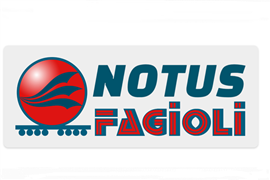Read this article in French German Italian Portuguese Spanish
Navigating cannabis confusion in the construction sector
28 February 2024
Despite marijuana being illegal at the federal level, 24 U.S. states, Washington, D.C., and three U.S. territories have legalized it. And medical marijuana is legal in 38 states.
 Image: guruXOX via AdobeStock - stock.adobe.com
Image: guruXOX via AdobeStock - stock.adobe.com
With the continual passage of recreational and medical cannabis laws, the percentage of construction and transport workers who test positive for marijuana will continue to increase. While the trades already represent some of the most safety-dependent industries in the world, impairment on any level, and indeed as a result of marijuana use, can cause even more considerable safety risks. That said, the emergent ambiguity around marijuana use in states where it is legal is fast becoming an HR obstacle course.
Consider that (according to Gallup) around 17 percent of Americans call themselves regular users of marijuana, while more than half of the U.S. population admits to using it at least once. Also noteworthy, of young adults aged 18 to 34, 3 in 10 say they smoke marijuana, while that number is about half for adults aged 35 to 54 – and even lower among adults aged 55 and older (7 percent). Additionally, college graduates (12 percent) are about as likely as those without a college degree to smoke marijuana.
Zooming out, what all of the above amounts to for companies across myriad industries, but especially the trades, is what has been described in many circles as the era of “cannabis confusion,” where human resources leaders nationwide are challenged to create an HR policy with workplace safety, productivity and inclusivity in mind.
Careful consideration
Even as marijuana use in American culture has become normalized, many organizations still routinely do drug screenings that include tests for marijuana, both for new hires and randomly for current employees.
Understandable – especially in the trades. But then, if it’s legal in your state, it will likely become more and more difficult to justify excluding marijuana users from your workforce. Obviously, impairment is impairment across the board – same as alcohol – but private use of marijuana off-hours in a state where it is legal obviously creates some HR challenges if/when an employee tests positive.
So, should companies be more tolerant of its use in a state where marijuana is legal – especially when less tolerance could shrink their pool of prospects? And are there other justifications for zero-tolerance policies and drug testing, beyond the mere illegality of marijuana? Additionally, does HR need to have a policy in place specifically covering marijuana in the workplace?
So far, research is showing that companies are finding it easier to simply tolerate off-duty use, in the same way they treat alcohol – with the understanding that, like alcohol, an employee using it during work is at risk of termination. But then, some medical marijuana patients could qualify as having a disability, which protects them in many ways. An added wrinkle that requires careful consideration when disciplining or terminating employment.
In this case, it’s paramount that you research what the courts say in your state about certain accommodations for marijuana – particularly when hiring and firing. That said, amid this new era, it’s never been more important for your leadership to be on the same page about what your company will or will not tolerate – especially as that tolerance aligns with whatever laws apply to your state.
Once you’re caught up on the latest laws in your state, get with your HR leaders and develop a drug- and substance-abuse policy that clearly defines both workplace use/intoxication and off-duty use – as well as the ramifications therein.
And, at least for now, accept that you might have to adapt both your thinking and your policy as these laws continue to evolve with the times.
STAY CONNECTED


Receive the information you need when you need it through our world-leading magazines, newsletters and daily briefings.
CONNECT WITH THE TEAM












